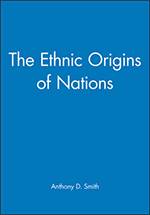OnPoint Subscriber Exclusive

Nancy Qian
Says More…
This week in Say More, PS talks with Nancy Qian, a professor at Northwestern University's Kellogg School of Management and Founding Director of China Econ Lab and Northwestern’s China Lab.
Project Syndicate: You recently pointed out that economic reporting about China focuses far too much on total GDP and not enough on per capita GDP. In fact, “China remains a poor country, despite its phenomenal headline GDP growth over the past four decades.” For that to change, you say, it must “significantly boost the incomes of a population about the size of that of Sub-Saharan Africa.” Are the government’s plans for the next five years likely to increase per capita GDP? What else should China be doing to tackle domestic poverty?
Nancy Qian: The timeline for lifting half the Chinese population out of extreme poverty needs to be longer – ten or more years. Poor rural populations need the tools and resources to become integrated into the modern economy, including better schools, better health care, a meaningful pension system, and savings instruments besides banks (which pay negligible interest rates to depositors).
The question is how to fund all this. As it stands, schools, health care, and pensions are insufficient in all but the wealthiest areas, and state banks maintain low interest rates as essentially a tax on depositors. Revenues from poor areas cannot be expected to fund the services and resources they need locally, not least because, as the China 2030 report showed, average GDP growth will decline steadily over time. This means that domestic poverty alleviation will require significant redistribution.
Qian recommends
We ask all our Say More contributors to tell our readers about a few books that have impressed them recently. Here are Qian's picks:
-

The Ethnic Origins of Nations
by Anthony D. Smith
As a habitual binge-reader, I will recommend sets of books – beginning with three of Smith’s works: The Ethnic Origins of Nations, Myths and Memories of the Nation, and A Nation in History: Historiographical Debates about Ethnicity and Nationalism. These books argue that nationalism is rooted in very old and fundamental human notions of group identity. The ideas they put forward – which I’m still digesting – give shape to my understanding of how and why a country like China is both ancient and constantly changing.
-

Stalin: Paradoxes of Power, 1878-1928
by Stephen Kotkin
For rich narratives of the early Soviet era, look no further than Kotkin’s biographies of Stalin – which also include Stalin: Waiting for Hitler, 1929-1941 – and Victor Sebestyen’s Lenin: The Man, the Dictator, and the Master of Terror. These works give readers a visceral understanding of how extreme personalities with exceptional ability created a sprawling state by implementing brutal methods in a terrible environment. I found the human experiences described in these books disturbing. But I also came away feeling optimistic, because they make clear how much economic, political, and moral progress the last century has brought.
-

The Expanse
by James S. A. Corey
This science fiction series is set a few hundred years from now, when humans, having colonized the moon, Mars, and the outer planets, are confronted with a new alien species. The stories provide insightful descriptions of human interaction and economic and political competition. They offer the fun of passing through worm holes, with none of the stress.
From the PS Archive
In “The Two Sides of Chinese GDP,” Qian argues that the media’s focus on aggregate income obscures how poor the country remains. Read more.
In “Rebuilding Social Trust in Post-COVID America,” Qian hopes that shared sacrifices during the pandemic will spur greater progress in economic redistribution. Read more.
Around the web
Qian, Abhijit Banerjee, and Esther Duflo estimate the effect of access to transportation networks on regional economic outcomes in China. Read the paper.
Qian, Sandra Sequeira, and Nathan Nunn analyze the effects of European immigration to the US during the Age of Mass Migration (1850–1920) on economic prosperity. Read the study.